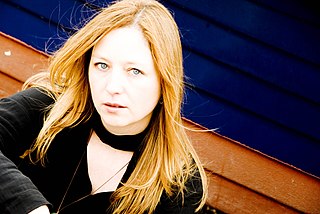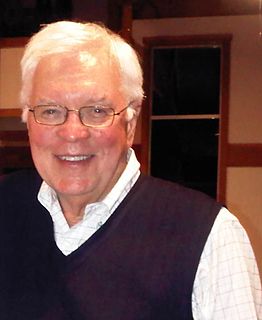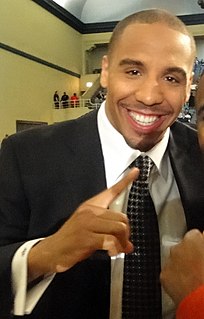A Quote by John Irving
I don't begin a novel or a screenplay until I know the ending. And I don't mean only that I have to know what happens. I mean that I have to hear the actual sentences. I have to know what atmosphere the words convey.
Related Quotes
Clarity is of no importance because nobody listens and nobody knows what you mean no matter what you mean, nor how clearly you mean what you mean. But if you have vitality enough of knowing
enough of what you mean, somebody and sometime and sometimes a great many will have to realize that you know what you mean and so they will agree that you mean what you know, what you know
you mean, which is as near as anybody can come to understanding any one.
When I'm writing, I won't know whodunnit until maybe two thirds of the way through. Until then, I know as little as my detective. I just make it up as I go along. It's nerve-wracking, actually. You'll be half through and not know your conclusion. You worry one of these days the ending won't come. I'll be left with only two-thirds of a novel.
The book works better if I know everything I can about the ending. Not just what happens, but how it happens and what the language is; not just the last sentence, but enough of the sentences surrounding that last sentence to know what the tone of voice is. I imagined it as something almost musical. Then you are writing toward something; you know the sound of your voice at the end of the story. That's how you want to sound in those final sentences: the degree that it is uplifting or not, the degree that it is melancholic or not.
I mean, when you think about it, it's 'bombs bursting in air,' 'rocket's red glare,' it's all kinds of - you know a lot of national anthems are that way, too - all kinds of military jargon, and the land - there's only one phrase 'the land of the free,' which is kind of nice, and 'the home of the brave?' I don't know....Are we the only ones who are brave on the planet? I mean, all the brave people live here I mean, it's just stupid, I think. I'm embarrassed, I'm embarrassed every time I hear it.
As far as Deep Purple goes, I mean, they're iconic. Their contribution is unquantifiable, and as far as the politics involved in things like awards, you know, I don't think anything, because I know what they mean to me, and I know what they mean to the people who like them. Awards are very politically based.
I have this theory about words. There's a thousand ways to say "Pass the salt". It could mean, you know, "Can I have some salt?" or it could mean, "I love you.". It could mean, "I'm very annoyed with you". Really, the list could go on and on. Words are little bombs, and they have a lot of energy inside them.
What does a life of total dedication to truth mean? It means, first of all, a life of continuous and never-ending stringent self-examination. We know the world only through our relationship to it. Therefore, to know the world, we must not only examine it but we must simultaneously examine the examiner.




































